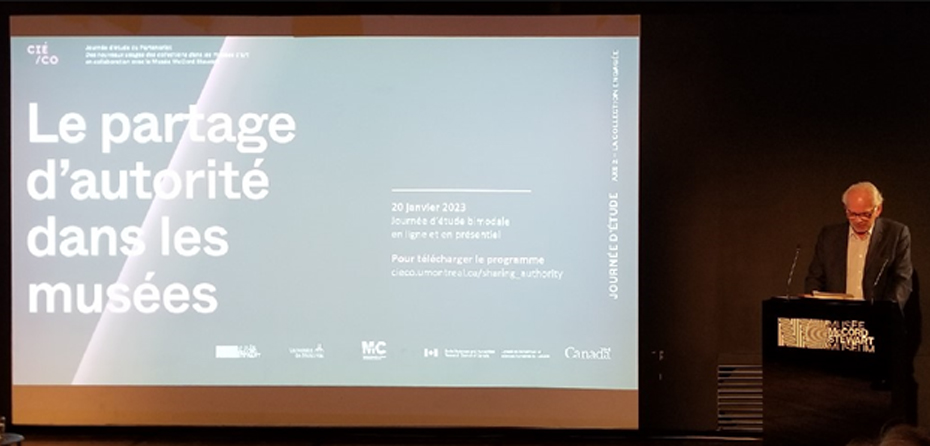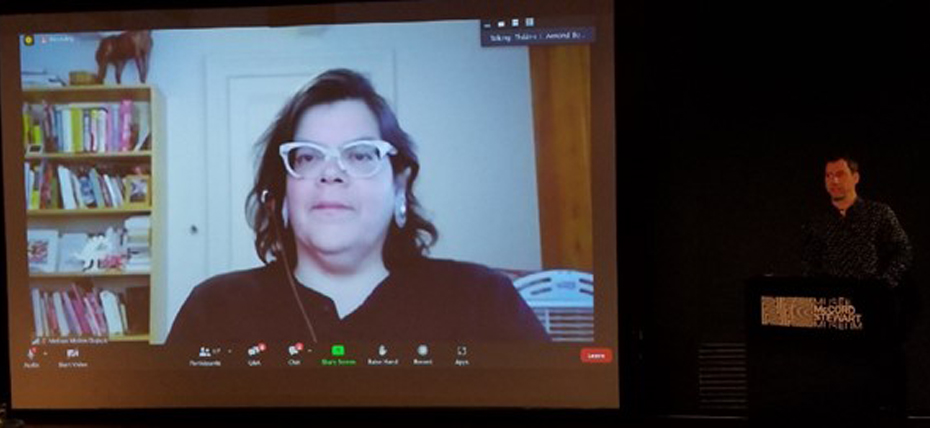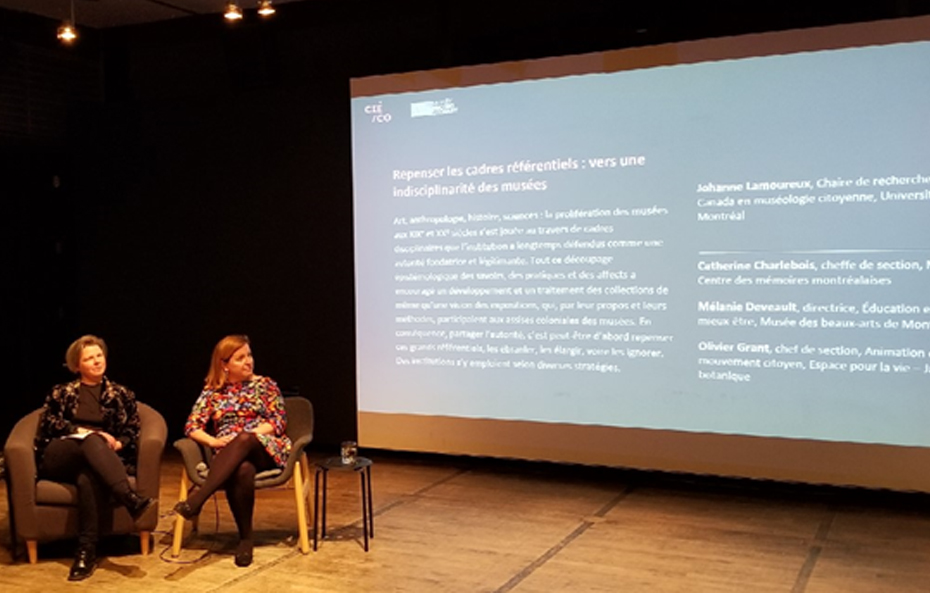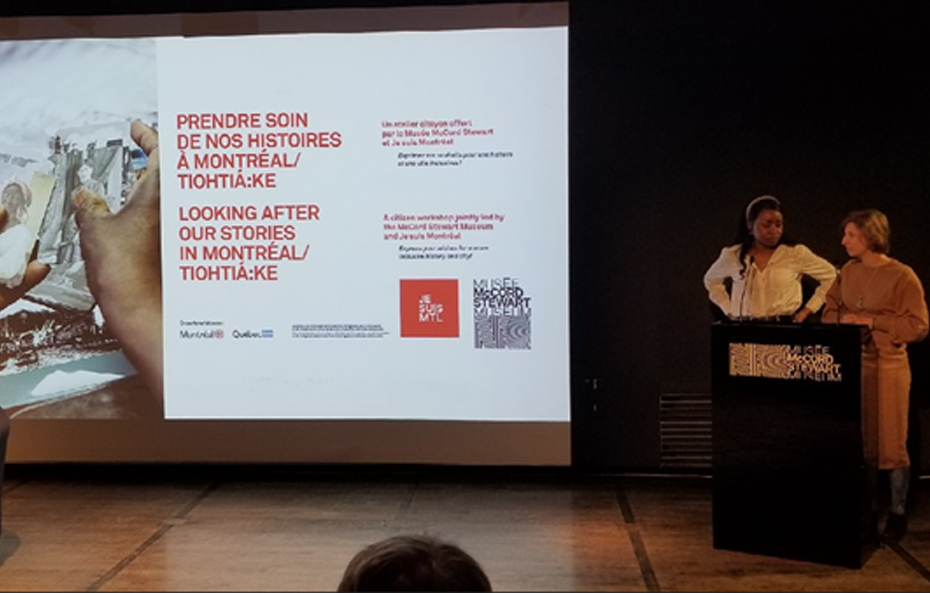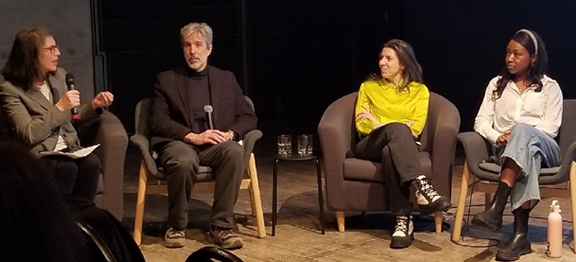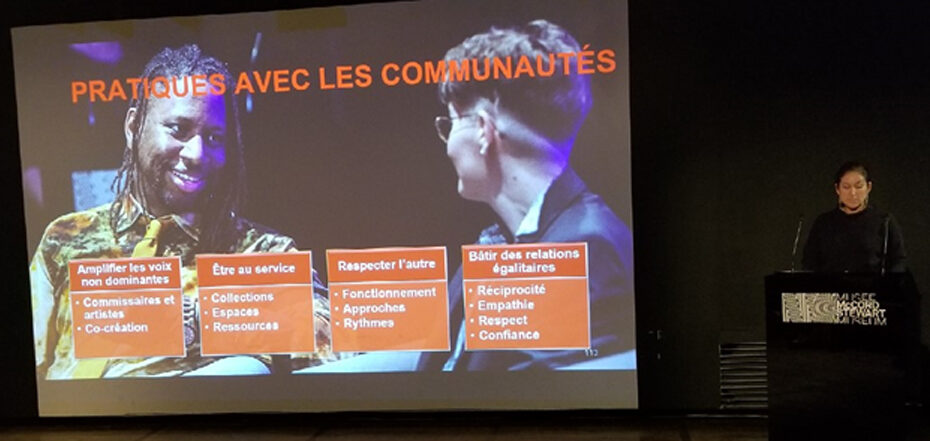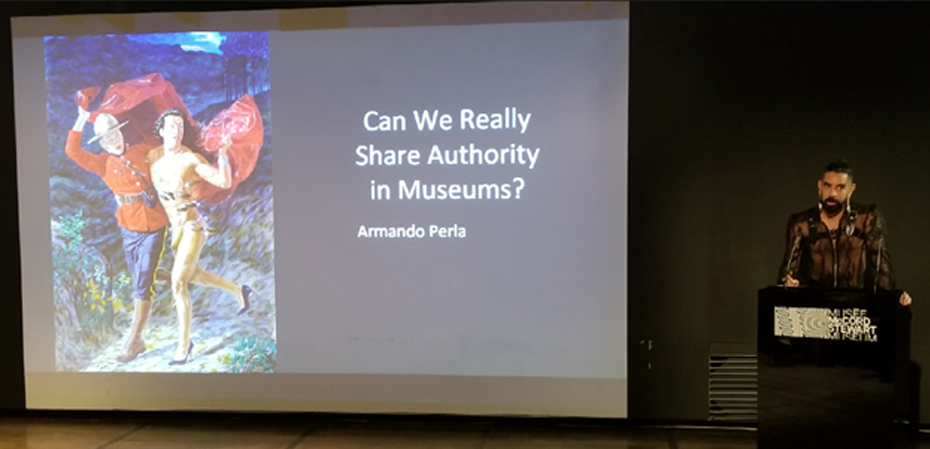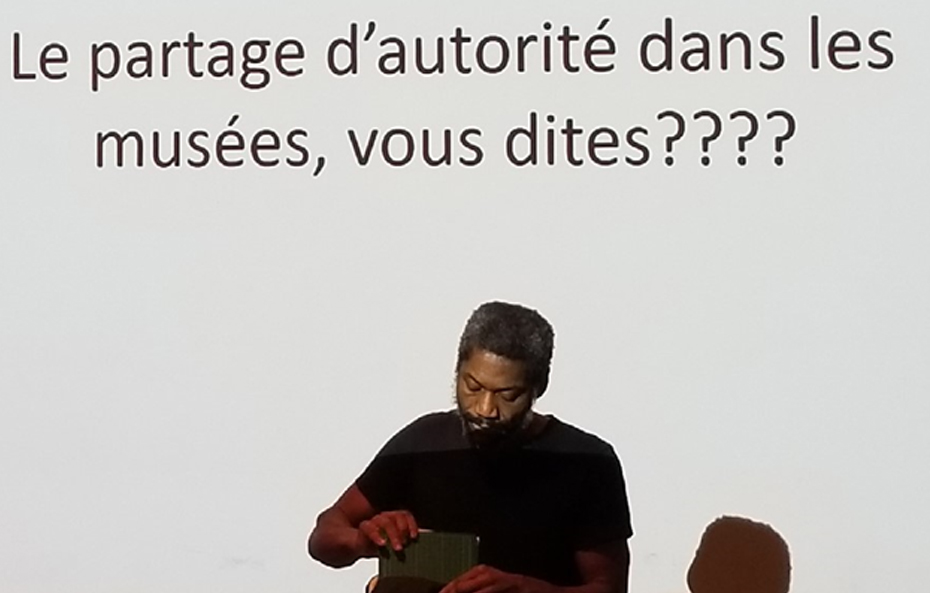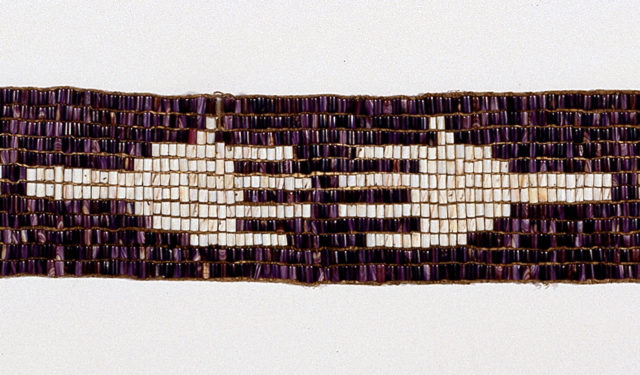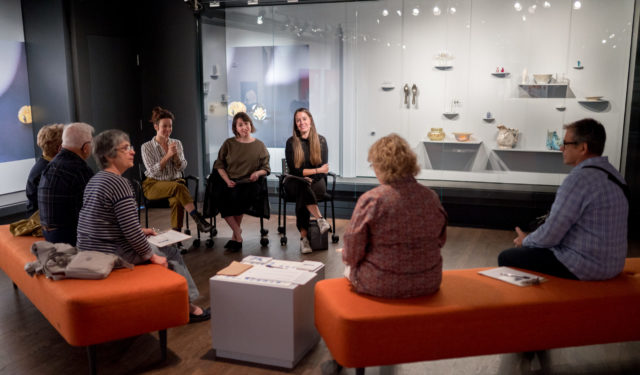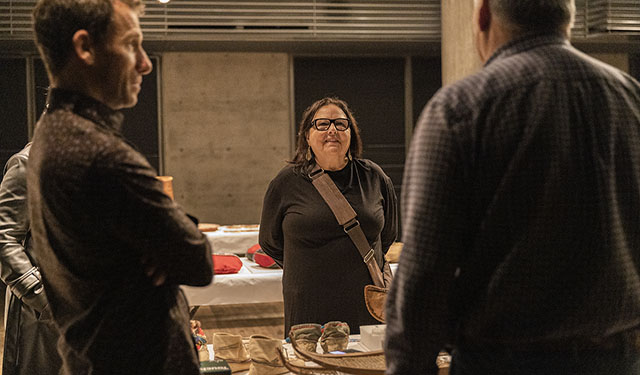Sharing Authority in Museums
Meet the researchers, artists, and community members working to shift institutional power dynamics and create change in museums.
July 21, 2023
Sharing Authority in Museums was a daylong symposium organized by Université de Montréal and the McCord Stewart Museum on January 20, 2023, with the support of the Social Sciences and Humanities Research Council and the Canada Research Chair in Civic Museology. The event was hosted by the New Uses of Collections in Art Museums Partnership, a project initiated by CIÉCO, a research and reflection group that brings individuals from Canadian and European universities together with professionals from six partner institutions through conferences, study days, workshops, and publications.
The event was part of the group’s second research axis—The Engaged Collection—which examines how citizen interventions and a drive for greater inclusivity are transforming museum practices. In a well-attended series of presentations and panel discussions, participants unpacked the concept of authority and how it manifests itself in organizational structures, programming initiatives, and curatorial frameworks.
A DAY OF QUESTIONS, IDEAS, AND CONCERNS
Following words of welcome from Ghislain Picard, Chief of the Assembly of First Nations Quebec-Labrador and Chair of the McCord Stewart Museum Board of Trustees, Johanne Lamoureux offered introductory remarks and paid tribute to Elisabeth Kaine (1955-2022), whose extraordinary work in the service of decolonization and relationship building continues to have a profound impact today.
Jonathan Lainey, Curator, Indigenous Cultures, McCord Stewart Museum and Mélissa Mollen Dupuis, Innu filmmaker and Indigenous rights activist, opened with a dialogue on the role of Indigenous consultation committees in museums. With regard to their experiences at the McCord Stewart Museum, Lainey and Mollen Dupuis discussed the difference between consultation and active decision-making and emphasized the social contract at the heart of collaborative work.
In a day that would offer more questions than answers, Lainey and Mollen Dupuis foregrounded the importance of positive relations and underlined the distinction between participation and power. How does moving at the speed of trust lead to better results? How can our daily interactions shape the future of museum functions?
PANEL DISCUSSIONS
A series of presentations by Catherine Charlebois, Section Director and Chief Curator, MEM – Centre des mémoires montréalaises; Mélanie Deveault, Director of Education and Wellbeing, Montreal Museum of Fine Arts; and Olivier Grant, Section Director, Animation and Citizen Movement, Espace pour la vie – Jardin botanique followed.
Engaged in a discussion with each other and the audience on the topic of Rethinking Referential Frameworks: Towards an Indisciplinarity of Museums moderated by Johanne Lamoureux, participants shared broad reflections on co-creation and public consultation, stressing how publics engage with institutional mandates from a wide range of experiences and perspectives.
How do we ensure that the positions of diverse stakeholders are incorporated from the very beginning of a project and not just addressed through educational or outreach programming? Who are museums accountable to and what authorities govern them? How can museum leaders justify the time needed to truly engage with the publics they serve?
After lunch, Marie Fraser, Canada Research Chair in Curatorial Studies and Practices, UQAM, introduced the panelists who would address the topic of Curation and Mediation: Sharing Authority with Communities and Museum Publics. Taïna Mueth, Co-founder and Creative Director of Je suis Montréal and Clara Chouinard, Project Manager, Education, Community Engagement and Cultural Programs at the McCord Stewart Museum presented a collaborative project that, in addition to inviting community members to contribute to the museum’s work, explores the connections between documentation, legitimization and the hierarchies of knowledge that exist in museum practice.
Je suis Montréal focusses on the idea of belonging over inclusion, and its work raises the important question of how museums can enact an ethics of care in their dealings with the public. How can we begin building trust with communities that been historically excluded from museum narratives? How is the authority of the museum perceived by the public today? How is artmaking a tool of soft power?
Following this thoughtful presentation, Laura Delfino, PhD candidate and Educational Programs Officer, Research, Innovation and Digital Mediation at the Montreal Museum of Fine Arts shared some of her research, which also deals with the problematic issue of belonging in the context of museums.
Analyzing what she calls the “irenical” or conciliatory approach traditionally adopted by museums in their attempts to co-create, her work examines how and why large institutions water down radical proposals and efforts to create spaces of equal, human-centred interaction. Further contributing to this dialogue on trust, Éric Giroux highlighted examples of program and exhibition co-creation at the Écomusée du fier monde, where he is Director of Research and Collections.
The final panel for the afternoon, Sharing Authority Within Museums, was introduced by Yves Bergeron, Canada Research Chair on Museum Governance and Culture, UQAM. Speakers included Eve-Lyne Cayouette-Ashby, Division Chief, Public Programs and Education, Espace pour la vie – Biosphère; Armando Perla, independent curator, academic, and activist; and, Pascale Grignon, Senior Director, Marketing, Culture and Inclusion, McCord Stewart Museum.
The panelists asked how we might begin to address power imbalances, the unequal distribution of resources, and the risk-aversion attitude endemic to institutions working in the service of boards over communities and individuals. Drawing from his experiences in prominent positions at a number of Canadian institutions in the last two years, Perla underlined the violence experienced by individuals from marginalized groups when they become the public faces of institutions, demonstrating the degree of scrutiny and hypervisibility to which queer and racialized folks in particular are subject. He revealed the many mechanisms through which systemic violence is inflicted on those hired to ‘transform’ institutions, though they are expected to do so without adequate resources or support.
WAYS FOWARD
In a moving conclusion to the day’s program, interdisciplinary artist Stanley Février offered a performance and meditation on his interactions with museums. Creating a space for productive discomfort and asking spectators to engage with their own biases, Février suggested that any true redistribution of authority requires a sacrifice of position and privilege, a willingness to lend and to lose credibility, and a shared undertaking of risk.
A day for study and discussion, Sharing Authority in Museums was an opportunity for professionals from a range of institutions to connect on questions of shared interest and concern. With more than 200 participants online and in person, it provided a platform to highlight successful practices and underlined the ongoing challenges of democratizing and decolonizing museums.
While museum collections and their value to diverse stakeholders served as a point of departure for the organization of this symposium, the complicated relational dynamics that accompany an honest engagement with the histories that museums steward emerged as the preeminent concern of participants. CIÉCO will continue to organize events on this topic and is proud to partner with institutions like the McCord Stewart Museum in exploring what it means to share in collections today.

